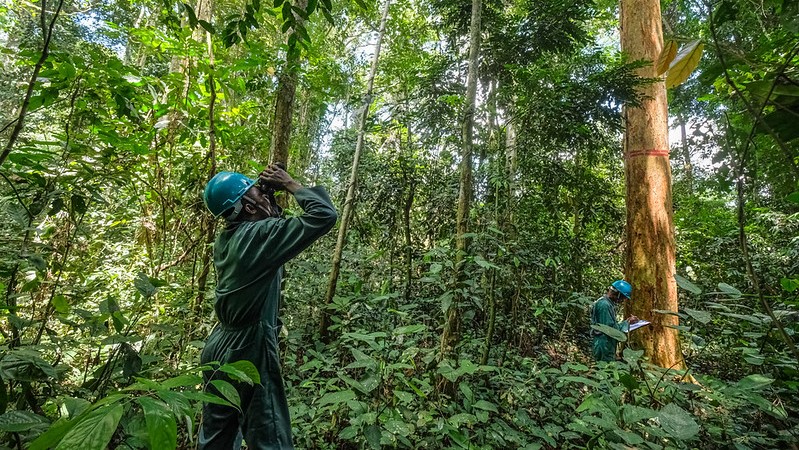When DR Congo opened up an area the size of Belgium to logging in 2018, violating a forest protection agreement with international donors, it was blamed on a “rogue” environment minister.
Now there is a new environment minister, same problem. Claude Nyamugabo secretly awarded logging concessions, covering nearly three million hectares in 2020, to two Chinese companies and a Congolese firm better known for industrial cleaning services.
Green groups are suing the minister, saying the contracts breach the country’s own 2002 moratorium on new forestry concessions – which the environment ministry denies.
As the world’s second largest rainforest, the Congolese forest is a major carbon sink and multiple international donors are invested in keeping that carbon locked up, primarily through the Central African Forest Initiative (Cafi).
These revelations come as Cafi is negotiating a renewed deal with the government to run until 2030.
This week’s stories
- Concerns raised about Green Climate Fund flood defence project in Samoa
- As US formally rejoins the Paris Agreement, eyes turn to 2030 emissions goal
- Under diplomatic pressure, India considers net zero – but major hurdles remain
- Italy creates ecological transition ministry but campaigners warn against gas support
- EU member states divided over green reforms of energy investment treaty
- Climate leaders welcome reforming WTO chief, as carbon trade wars loom
- Angola’s oil dependency thwarts its exit from the group of poorest nations
Targetology
The US is officially back in the Paris Agreement, which means its 2030 climate pledge is overdue. There are a lot of numbers flying around.
Anything less than a 50% emissions cut from 2005 levels would be seen as grossly inadequate by climate advocates, with many arguing 70-85% would be a fairer contribution.
Meanwhile Cop26 president Alok Sharma’s visit to India has generated chatter about net zero, but the institutional and analytical capacity to make a credible pledge is not there yet.
